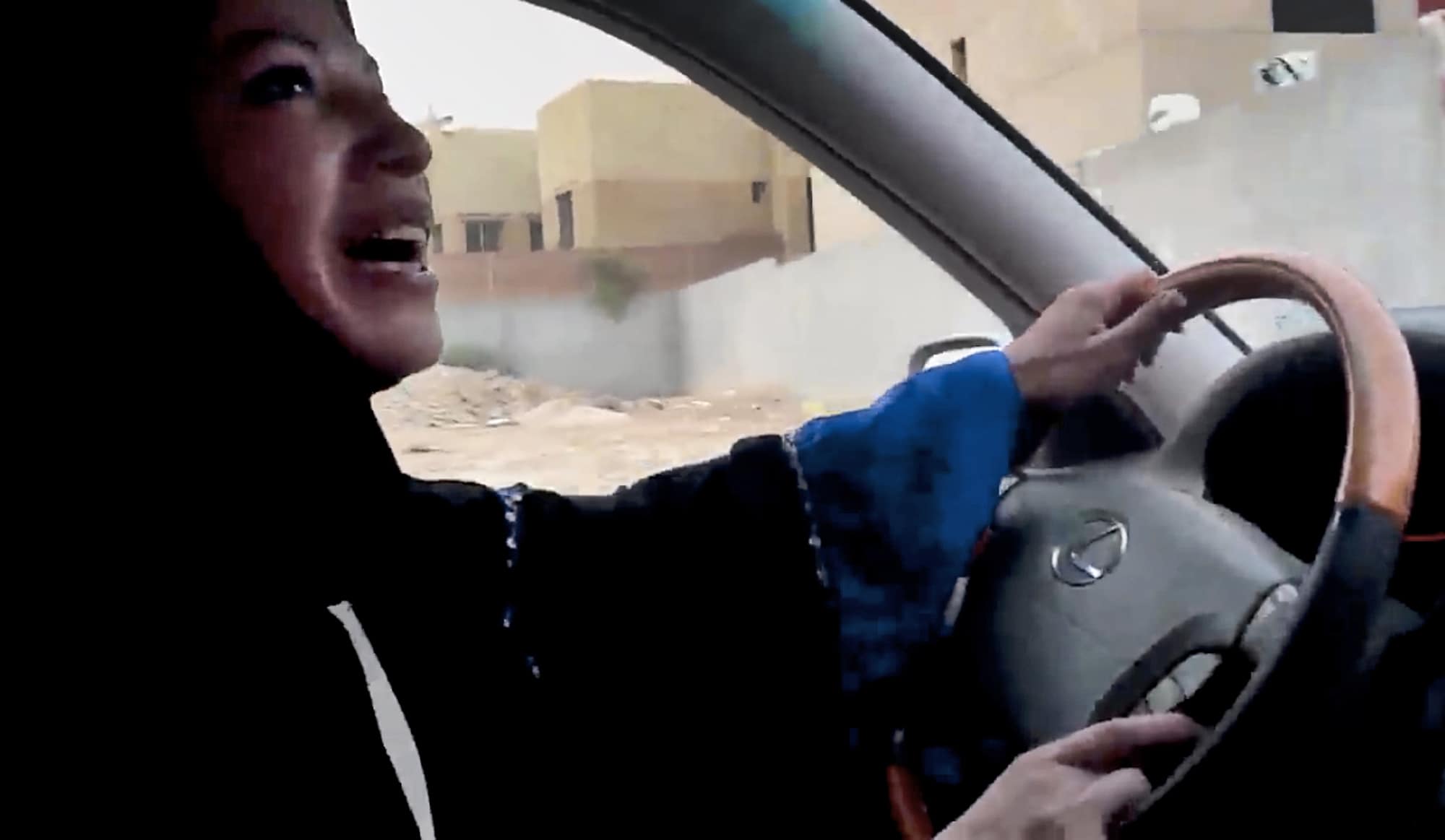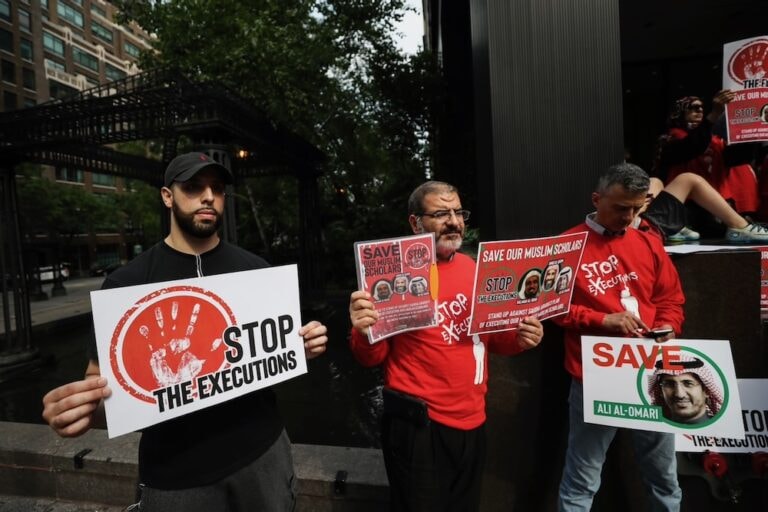A male journalist who expressed support for an end to the ban on women driving in Saudi Arabia is currently held in detention without access to relatives or legal counsel.
Saudi authorities should immediately release a male journalist who expressed support for an end to the ban on women driving in Saudi Arabia, Human Rights Watch said today. Officials should also stop harassing and trying to intimidate activists and women who defied the ban by driving on October 26, 2013.
Local activists reported that more than 50 women defying the ban drove on October 26, according to messages they received from the women and videos women uploaded to YouTube showing themselves driving.
“Saudi authorities are retaliating against people who want a very basic right for women, the right to get behind the wheel and drive themselves where they want to go,” said Joe Stork, deputy Middle East director at Human Rights Watch. “The authorities should end the driving ban and stop harassing people for supporting women’s rights.”
On the afternoon of October 27, the Interior Ministry’s Criminal Investigation Department summoned Tariq al-Mubarak, a secondary school teacher and columnist for the London-based Arabic newspaper Asharq al-Awsat, to question him about his support for the driving campaign, activists told Human Rights Watch. Family members told activists that when al-Mubarak arrived at the Criminal Investigation Department at 3 p.m., police took him into custody, and that he remains in detention without access to relatives or legal counsel.
Al-Mubarak has actively supported the driving campaign. On October 6, he published a column in Asharq al-Awsat entitled “The Woman in the Gulf…Time for Change.” The column criticized the driving ban, among other instances of discrimination against women.
On the evening of October 26, according to the Saudi news website al-Sabq, police officials said that officers had pulled over at least 18 women driving in various areas of the country, though it is unclear whether any of the women face fines or other penalties. Agence France-Presse reported that day that at least 16 women were fined.
The news agency also quoted a Riyadh area police spokesman, Fawaz al-Miman, saying that police forced six of the women they stopped, along with their male guardians, to sign a pledge to “respect the kingdom’s laws” and pay a fine of 300 Saudi riyals each (US$80). The Arabic daily newspaper al-Hayat quoted al-Miman as stating that authorities do not want to reveal what actions they took against women who broke the ban “so that the number of cases [of women driving] does not increase.”
Days after the event, police cars remained stationed outside the homes of at least four women involved in the driving campaign, activists said. Several women activists involved in the campaign told CNN that they had been “followed by cars filled with men” since October 26.
Saudi women started the “Women2Drive” campaign in 2011, and recently called for women with international drivers’ licenses to drive on October 26. Even before that date, women defied the ban and published online videos of themselves driving the kingdom’s roads, including footage showing Saudi men driving by and giving the thumbs-up sign to show their support.
After more than 100 clerics visited the Royal Court, the office of the king, to protest “the conspiracy of women driving,” as one cleric called it, the Interior Ministry issued a statement on October 23 warning that officials would enforce the law on October 26, when women were to drive. Saudi activists said that on October 24 a man who said he was from the Interior Ministry individually phoned women activists behind the “Women2Drive” campaign, warning them not to drive. He told them that officials would take measures against all women who defied the driving ban, and that women caught driving could be taken into custody. Some women who had planned to drive on October 26 decided against it, they said.
An informal prohibition on women driving in Saudi Arabia became official policy in 1990. During the Gulf War, Saudi women saw female American soldiers driving on military bases in their country, and organized a protest against their own restriction. Dozens of Saudi women drove the streets of Riyadh in a convoy. In response, officials arrested them and suspended them from their jobs. The Grand Mufti, the country’s most senior religious authority, immediately declared a fatwa, or religious edict, against women driving, stating that driving would expose women to “temptation” and lead to “social chaos.” The interior minister at the time, Prince Nayef bin Abdulaziz, issued a decree banning women from driving, based on the fatwa.
The country’s male guardianship system treats Saudi women as legal minors who cannot conduct official government business, travel abroad, marry, pursue higher education, or undergo certain medical procedures without permission from their male guardians – a father, husband, brother, or even a son. Women cannot protest or establish independent organizations to address women’s rights, as the kingdom bans protest and does not permit nongovernmental human rights organizations to operate freely.



